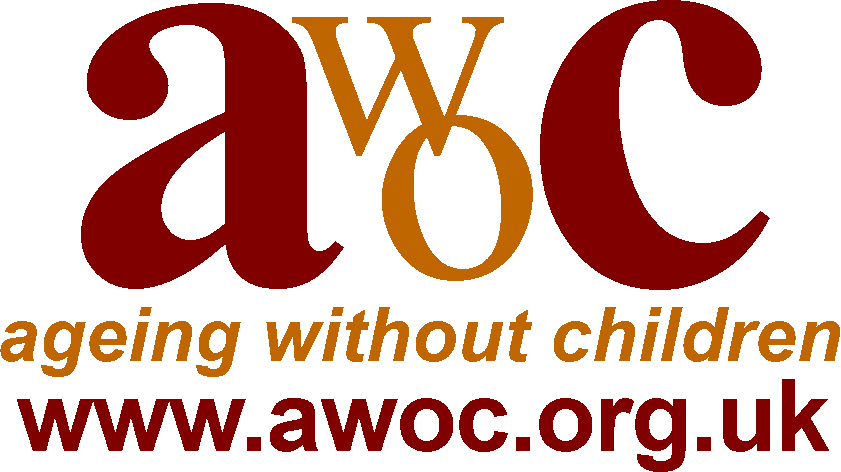This week is dying matters awareness week the fantastic campaign to get everyone talking about the one inevitability of life; death. Death cafes where people can talk about dying over coffee and cake have sprung up everywhere and end of life care has become as big a topic in ageing as things like dementia and alzheimer’s disease, social care and pensions. Everywhere we are being encouraged to have a “big conversation” about death.
Here’s the rub though; much of the narrative around having the conversation is still framed in familial terms i.e. talk to your family about what you want, which usually means spouse/partner and/or children. “Loved ones” is used a lot too which is often another way of saying “family” though it can encompass close friends. Of course as is often pointed out, as people age their close friends do as well and may not be in a position to help when end of life nears.
For people ageing without children dying and death are very difficult subjects because they bring into sharp focus aloneness. No one wants to die alone and although of course in the end death is something we can only experience on our own, the feeling that you might not at least have someone with you as you start towards it is very frightening.
My mother in law died recently 3 months after receiving a diagnosis of terminal cancer. I saw first hand how much difference it made having her children and grandchildren with her during the many and varied trips to GPs, hospitals and at the end the hospice. I also remember very sadly one afternoon at the hospice where the much older lady in the room next door to hers who never seemed to have anyone come and see her calling repeatedly for a nurse “oh why won’t you come and help me?” till I went and found someone to see her.
My husband and I often joke about a joint trip to Dignitas when the time comes but you know it’s not so much of a joke. One of us will die before the other and the idea of one of us being left alone without the other overwhelms me with grief. For us no element of our love will live on, there’s no child who with a sudden expression or sudden smile will recall to mind his smile or my eyes. When the other is gone, they are gone with total finality.
Big conversations about death are very welcome but they have to include people whose circumstances are different or difficult; people who have no family to discuss things with, no loved ones to see their wishes are carried out. Perhaps we need a national death service where people can make practical plans as well as talk about their hopes and fears about death. We need more death doulas http://www.lwdwtraining.uk/ and more projects like this My Life My Decision
Next year AWOC hopes to run some death cafes for people ageing without children so we can start to have the Big Conversations that work for us. In the meantime if you are running a death café or any event around end of life this week, be mindful of those without family or loved ones. Death is a hard conversation for all of us but one we must have so that the last thing we ever do is done in the right way.
